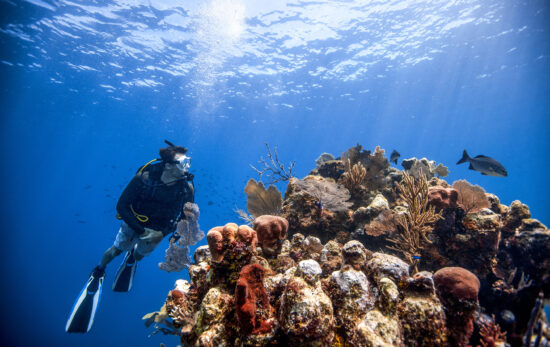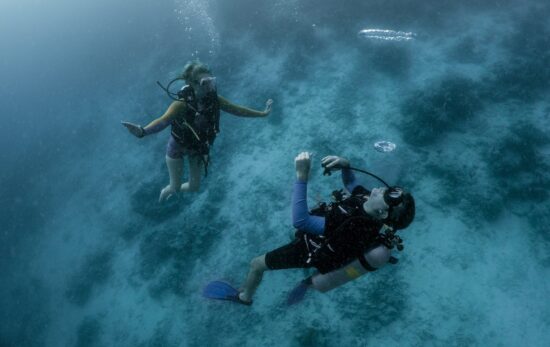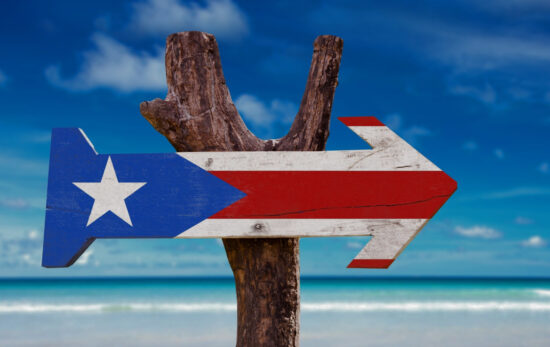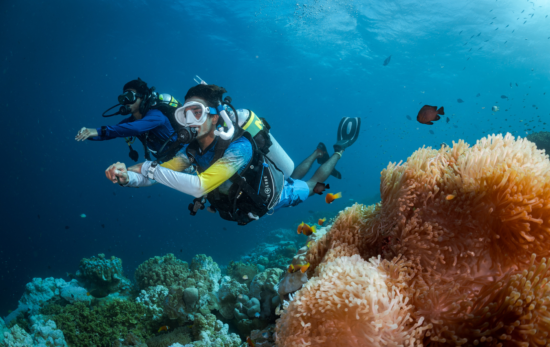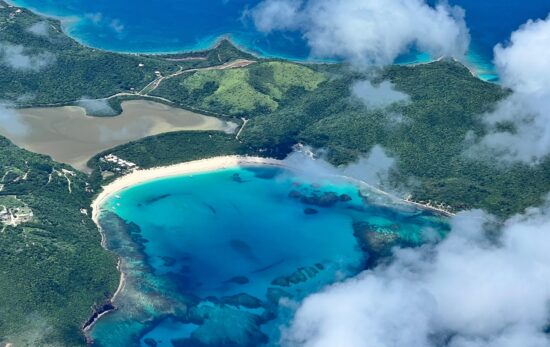Scuba diving can be a great standalone activity, but it can also enhance some of your other hobbies, too. What do we mean? Well, getting in the water with a tank on your back, descending into the depths and taking in the underwater world provides you with transferable skills to make you a better freediver, surfer, photographer, etc. The list goes on and on, really. Here are just 5 of the many hobbies improved by scuba diving.
Are you already involved in these hobbies? Read all the way to the bottom to learn how to get scuba certified.
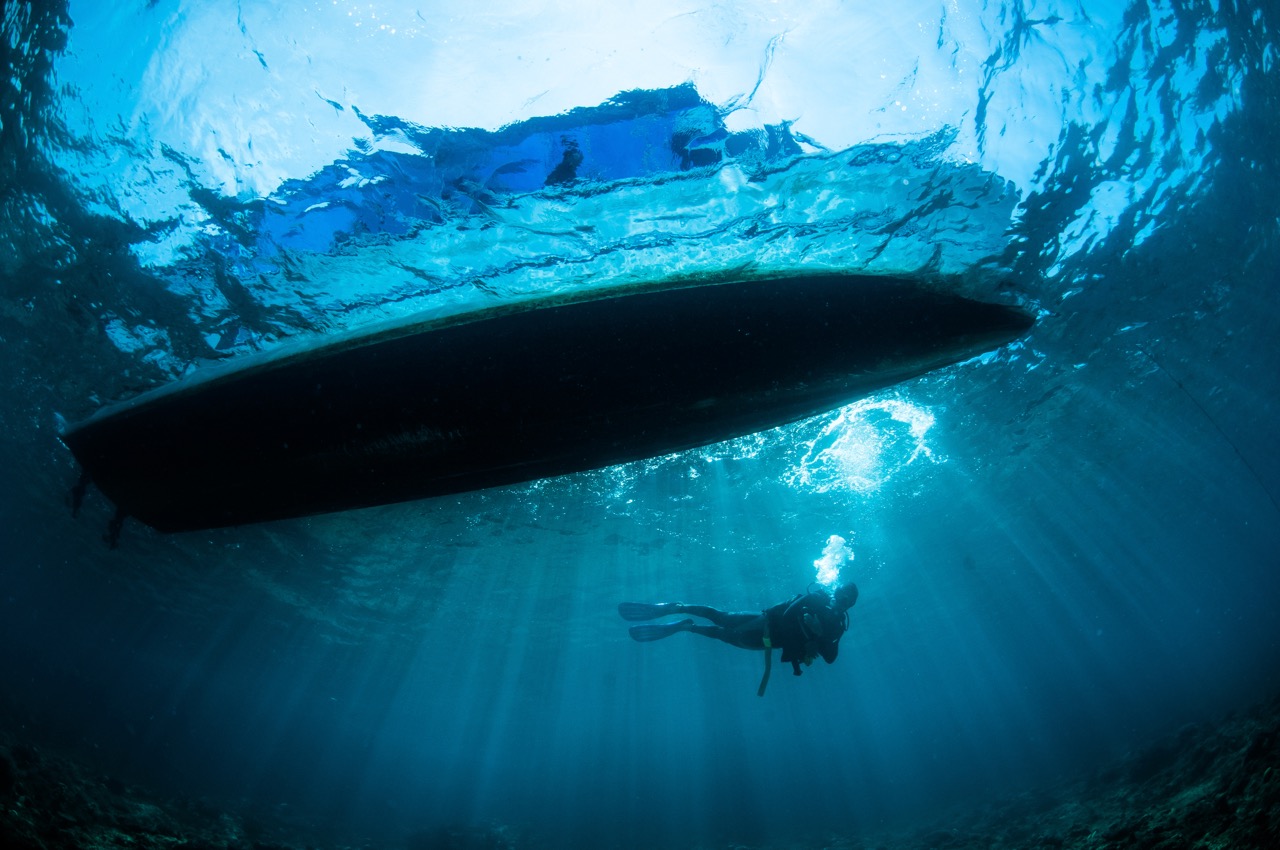
Boating
If you enjoy boating, that means you spend plenty of hours above the water’s surface, but it doesn’t necessarily mean you get in the sea. As a boater, adding scuba diving to your list of hobbies will give you a way to see what’s actually lurking underneath the surface, giving you a greater appreciation for what calls the ocean home, what actually passes by when you’re not looking and why choosing a suitable anchor site deserves plenty of consideration. Choosing to dive will only grow your love for the watery world, resulting in trips filled with even more fun and an activity that’s more fulfilling on a personal level.
In addition, from a money-saving point of view, boat owners (especially big boat owners) who know how to handle scuba gear will be in a position to save on paying for someone else to clean the boat’s hull.
Surfing
Catching waves puts you in the water for hours at a time. Naturally, this builds a connection to the ocean. Surfers usually have a good grasp of predicting wave frequency and ocean currents, in addition to being unwantedly familiar with the same several feet of water below any attempted wave, successful or not. Either way, there’s a good bet the average surfer will enjoy being able to spend prolonged periods under the water, whether for the greater exposure to marine life or just a closer look at what’s going on.

Yoga/Meditation
Conscious and controlled breathing is already at the core of both yoga and meditation. Putting a scuba tank on your back, dropping into the wet stuff and mastering your breaths in and out surrounded by walls of water can only add to this control. Breathing control and mental calmness during diving will gain experience and ultimately help you in the studio. For many people, scuba diving also forms the basis of a “happy place”, which can help stimulate calm, help the individual find a center and generally relax anyone.
Freediving/Mermaiding
It seems pretty obvious that anyone who already enjoys freediving or mermaiding as a hobby has an interest in what’s going on under the surface. In terms of what scuba diving can bring to these already underwater-focused hobbies, it’s really the difference between turning a maximum dive time of minutes into a maximum dive time of around one hour. And while scuba divers may not ooze the same tank-free grace of freedivers or mer-people, they are able to go deeper (at a recreational level) for longer, resulting in a different, yet equally appealing, kind of experience.
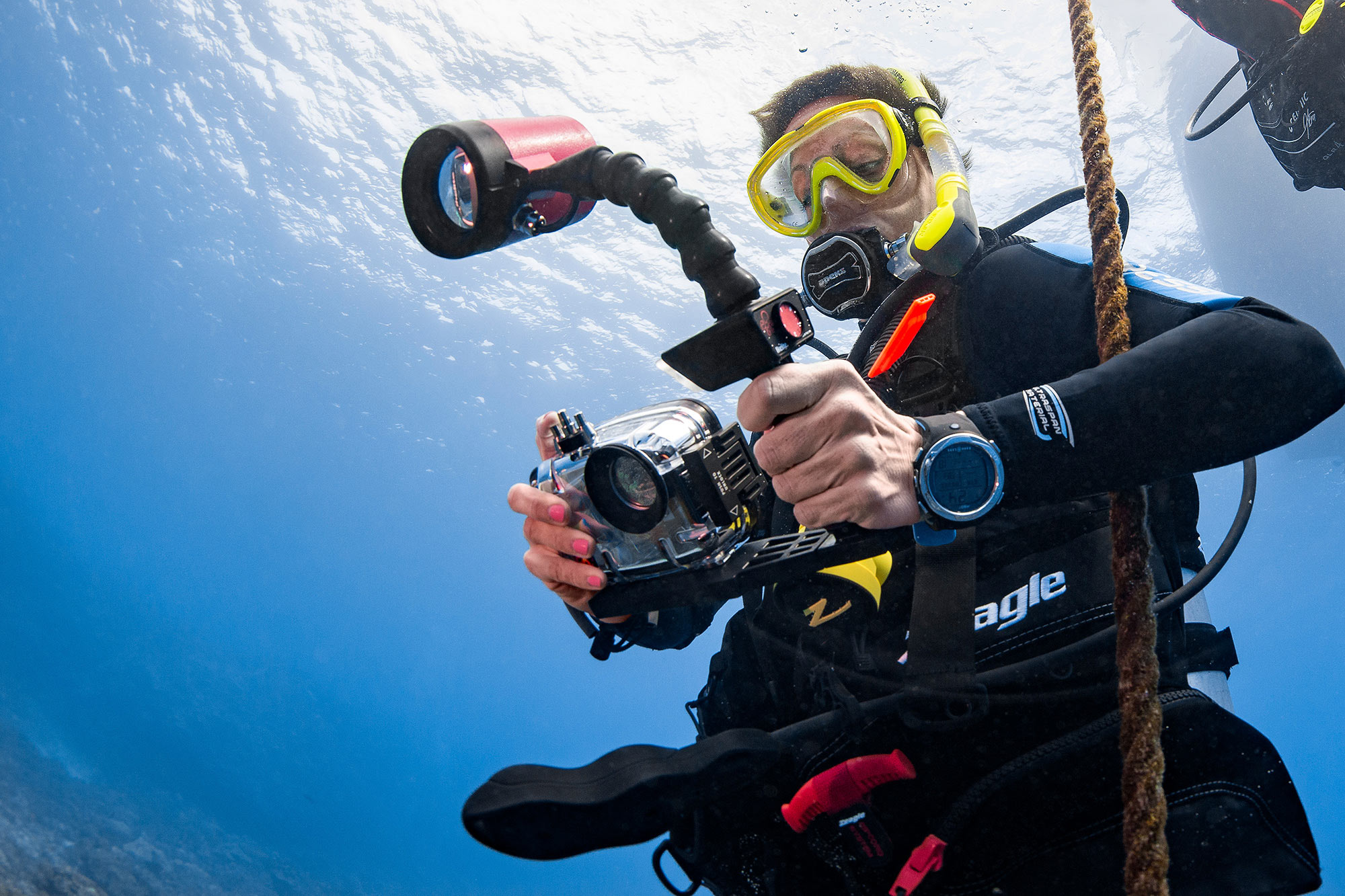
Photography
It’s one thing to understand and manage the core elements of photography when you’re stood in good light, pleasant weather and shooting a near-stationery subject, it’s a whole different thing to do it as you’re shifting in current, being ignored by fast-moving megafauna and trying to gather enough light to produce a shutter speed which doesn’t produce blurry/unusable images (Oh, and don’t forget red light starts to disappear rather quickly at depth). It is undeniable that learning to scuba dive, and more specifically learning to be a competent underwater photographer, will give you a whole new set of skills, even if you end up cursing underwater photography and decide to just enjoy taking photos on the surface.
If you’re ready to add scuba diving to your list of hobbies and enjoy all of the potential benefits it can bring to other aspects of your life, start your Open Water Diver course and learn to Live Unfiltered.
